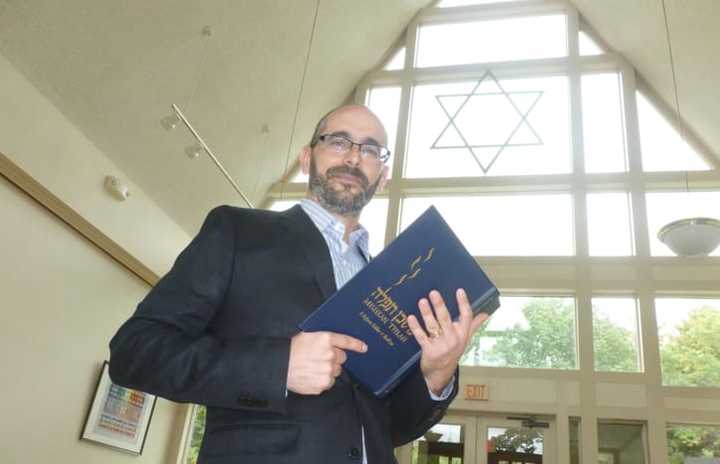Rabbi Jay TelRav at Stamford's Temple Sinai, said Yom Kippur and the days leading up to it are a time for Jews to take reflect on how they have dealt with others and on Yom Kippur, with God.
"The design is for us to have intentional time where we focus on our relationship with God," he said. "But before we can get to that we have to focus on our relationship with other people."
People make amends and ask for forgiveness for any misdeeds they may have made throughout the year and promise to change, he said. Once that is accomplished, all attention is turned to God, TelRav said.
"Once we feel have accomplished all that then the day of Yom Kippur allows us to approach God and to say with greater confidence that we are ready to make a change," he said.
"It is not a given in the traditional theology that we are going to make it to the next Yom Kippur. We are trying to convince God to give us another year of life. It is a mechanism to accomplish what we should have been able to do on our own," he said. "If we were blameless there would be no reason for Yom Kippur."
According to Jewish tradition, God inscribes each person's fate into the Book of Life on Rosh Hashanah. On Yom Kippur, he seals the verdict.
The belief is that there are a few people who are so good that they are inscribed into the Book of Life, while the few truly evil people are inscribed into the Book of Death, TelRav said. For the vast majority, the period before Yom Kippur is a time to strive to have a favorable verdict he said.
"We are working hard to try and tip the balance, the scales as it were, in our favor," he said.
On Yom Kippur, literally the Day of Atonement, Jews fast for 25 hours beginning at sundown Friday and spend the time in contemplation and prayer until after sundown Saturday.
The 25-hour fast, along with the time spent in prayer and services, is a way to shed the daily concerns of the body and of life, TelRav said. However, it is an intense time that includes six services on Yom Kippur that he likens to a marathon.
"I find myself physically and spiritually exhausted," he said Thursday.
The evening service "has a lot of grandeur to it, the music, and the poetry and the choreography of the service are profound," he said. "A lot of nostalgia, a lot of cultural queues, the sounds and the movements and the words.
"The following day has an interesting energy pattern. We start sort of strong. There is a power to the morning service, but as the day drags on and our energy, from lack of eating and from spiritual exertions, as it wanes the feeling turns almost into one of desperation. We have fewer and fewer hours to convince God that we are worth it."
However, by the last service, people begin to see the end, he said.
"The last service of the day we bounce back again," TelRav said. "The day is just about over the gates are closing. We have done all we can and now we are hoping for the best."
The day finishes with a meal to break the fast, he said.
Click here to follow Daily Voice Stamford and receive free news updates.

